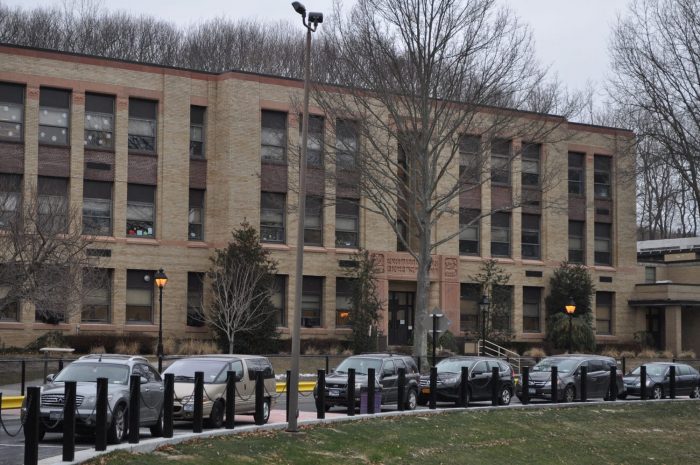Port Jeff community rejects $15.9M capital bond for school infrastructure
Residents of the Port Jefferson School District narrowly rejected yet another proposed capital bond during the Tuesday, May 16, school elections. Just 34 votes decided the outcome as the community voted down the district’s proposed $15.9 million capital bond by a 708 to 674 margin.
The “no” vote comes just over six months after the community rejected a pair of capital bonds totaling nearly $25 million. The deferred investments in school infrastructure now raise questions about the school district’s long-term future.
“It’s disappointing that a small bond with critical updates failed by a small margin,” PJSD Superintendent Jessica Schmettan said in a statement. “Our community is clearly divided on how to move forward.”
Village of Port Jefferson Mayor Margot Garant has been an ardent supporter of these proposed school infrastructure improvements. In an exclusive interview, she expressed her displeasure with the outcome.
“I would have hoped that the members of the community would have a little bit more vision and understanding of the consequences of not investing in our district and our facilities,” she said. “Nevertheless, the schools remain a major selling point in this community.”
The mayor added, “We want to remain positive, support our district and all the programs, making sure the facilities remain safe for our kids. I’m sure the Board of Ed will continue to do that, although they are working with less and less resources every year.”
In preparing this year’s capital bond proposal, the school board had scaled down its financial request to the voters by about a third, eliminating the proposed artificial turf field at the high school that was part of the December proposal.
Given the challenges of getting these bond projects approved, Garant expressed uncertainty about how the voters can ultimately pass these infrastructure projects.
“I’m not real sure,” she said. “Maybe they put it up with each budget in the years to come, one small bond initiative at a time. But then you’re not doing a long-term project plan.”
She added, “I’m not really sure if it’s the messaging or just the community’s misunderstanding of the impacts. People [are] making large, generic statements instead of looking at this very carefully.”
The bond’s rejection resurrects long-standing questions over declining student enrollment and public revenue, with some community members beginning to advocate for a possible merger with a neighboring school district.
Garant rejected this thinking, noting the substantial costs associated with such a plan. “I think that would be this community’s gravest mistake,” the mayor said. “Their school tax dollars would immediately almost double.”
She added that there are other unsettled questions over a potential merge, including what to do with the PJSD’s existing properties and whether a neighboring district would even accept its students. “It’s a very long process, and it’s not a solution when you have the opportunity to make a long-term investment to making things better.”
Despite the outcome, Garant said the community should closely assess its priorities and begin to chart a path forward.
“I think the [school] board is resilient, and the community is resilient,” she concluded. “We’re going to encourage them because they were very, very close, and we just have to keep trying.”







